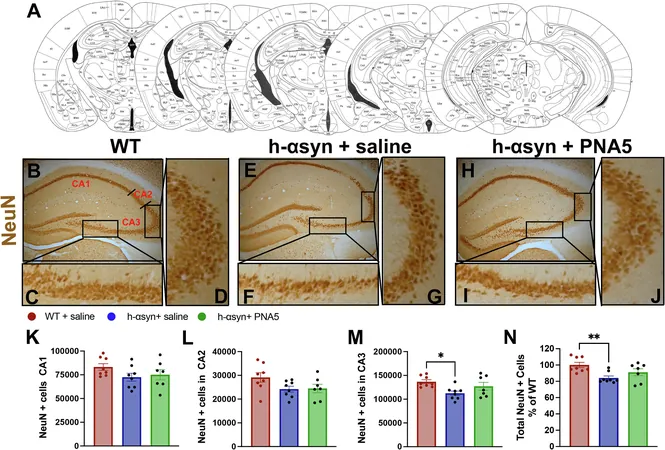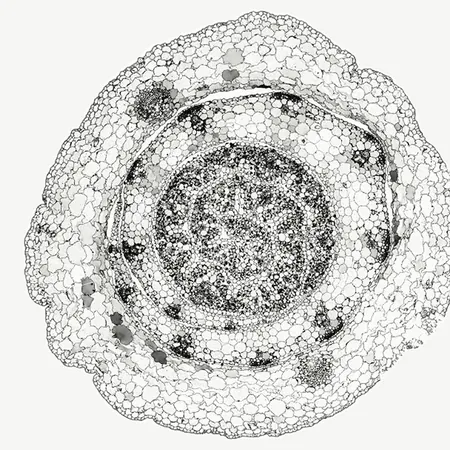
Breakthrough in Ovarian Cancer Treatment: Wistar Institute Unveils Promising Combination Therapy
2024-11-21
Author: Mei
Introduction
A groundbreaking study from the Wistar Institute in Philadelphia has unveiled a new approach to treating metastatic ovarian cancer, a disease notorious for its high mortality rates and resistance to conventional therapies. Led by Dr. Nan Zhang, an assistant professor in the Ellen and Ronald Caplan Cancer Center’s Molecular and Cellular Oncogenesis Program, this research showed that combining two agents could significantly shrink tumors and improve survival rates in preclinical models.
Study Findings
Published in The Journal of Experimental Medicine, the study titled "Myeloid activation clears ascites and reveals IL27-dependent regression of metastatic ovarian cancer" details how researchers activated myeloid cells, which play a crucial role in immune defense, using a combination of β-glucan—a pathogen-derived stimulator—and interferon-gamma (IFNγ). This innovative method aims to not only combat the cancer directly but also to enhance the effectiveness of chemotherapy by making tumors more susceptible to treatment.
Significance of the Research
Dr. Zhang emphasized the novelty of their approach: “This is the first time researchers have been able to indirectly target ovarian cancer cells in peritoneal fluid by inducing an immune reaction, in preclinical models.” The significance of this research cannot be understated, as ovarian cancer is particularly lethal; patients with metastatic forms have only a 30% chance of surviving five years post-diagnosis.
Challenges in Treatment
The challenge of treating ovarian cancer is compounded by its tendency to spread through the peritoneal cavity—a space that naturally suppresses immune responses, posing an additional hurdle for effective treatment. Historically, the approach taken by Wistar researchers echoes a practice from the late 19th and early 20th centuries, where Dr. William B. Coley successfully treated various cancers by injecting patients with dead pathogens to stimulate immune responses.
Efficacy of the Treatment
In the laboratory tests, tumors significantly diminished in size following the combination therapy with β-glucan and IFNγ, outperforming control groups. Remarkably, this treatment also showed efficacy against chemotherapy-resistant strains of ovarian cancer, breaking through a barrier that has long hindered treatment options.
Future Implications
Co-author Dr. Brennah Murphy described the study's implications: “Our work has opened the door to a possible new method of treating a particularly aggressive cancer. Ovarian cancer is infamous for resisting treatment, but we’ve shown—at the preclinical level—our treatment overcomes that resistance.” This research holds the potential to transform the landscape of ovarian cancer therapy, offering hope to those affected by this aggressive form of cancer.
Next Steps
The next steps will involve moving towards clinical trials to determine the effectiveness of this combination therapy in human patients. With ongoing studies supported by significant grants from the National Institutes of Health and collaborations with prestigious institutions like Kyoto University and MD Anderson Cancer Center, the Wistar Institute is making strides that could lead to life-saving treatments for ovarian cancer patients.
Conclusion
Stay tuned as the scientific community watches closely for further developments in this exciting field that may soon change the fate of many patients battling ovarian cancer.



 Brasil (PT)
Brasil (PT)
 Canada (EN)
Canada (EN)
 Chile (ES)
Chile (ES)
 España (ES)
España (ES)
 France (FR)
France (FR)
 Hong Kong (EN)
Hong Kong (EN)
 Italia (IT)
Italia (IT)
 日本 (JA)
日本 (JA)
 Magyarország (HU)
Magyarország (HU)
 Norge (NO)
Norge (NO)
 Polska (PL)
Polska (PL)
 Schweiz (DE)
Schweiz (DE)
 Singapore (EN)
Singapore (EN)
 Sverige (SV)
Sverige (SV)
 Suomi (FI)
Suomi (FI)
 Türkiye (TR)
Türkiye (TR)